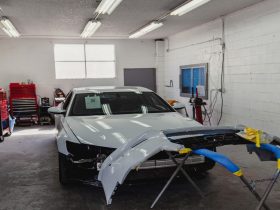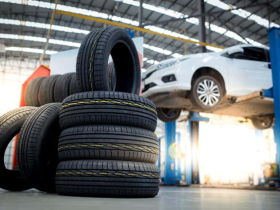A crucial part of commercial vehicles’ suspension systems are ball joints. They serve as universal joints, providing flexibility and facilitating smooth wheel movement while bearing the weight of the car. These spherical bearings facilitate steering and improve ride comfort by serving as an essential link between the car’s chassis and its wheels. Ball joints, like any mechanical part, are susceptible to wear and tear over time as a result of continuous strain and exposure to working environments. Vehicle performance may suffer as they degrade, especially in commercial situations where dependability is crucial.
Control and Precision in Steering
Loss of steering accuracy is one of the most noticeable effects of worn ball joints. Degradation of the ball joint may result in excessive play in the steering system, which might cause steering to become hazy or unresponsive. This degradation impairs the driver’s perception of the road and may make driving challenging, especially in situations with high stakes like delivery routes or metropolitan areas. Reduced steering control in commercial vehicles, where rapid reflexes and abrupt maneuvers may be required, is dangerous and may result in accidents that raise the company’s insurance and liability expenses. Hiring the Auto Repair in Dallas, TX based service would be the best idea here.
Impact of Suspension System
The suspension system’s goal is to minimize tire and other component wear while maintaining comfort and stability for the car. The integrity of this system may be compromised by worn ball joints, which would result in subpar suspension performance. As a result, there may be more bouncing, swaying, and vibration in the car, which would be uncomfortable for both the driver and the passengers.
Managing and Excessive Driving Tiredness
Wear on ball joints may cause poor handling, which can worsen driver fatigue. Uncontrollably driven vehicles make drivers work harder, which wears them out both physically and mentally, especially on lengthy trips or challenging routes. Fatigue increases the likelihood of collisions, which puts other drivers’ lives as well as the lives of other road users at jeopardy. This might result in an increase in liability claims and harm to a company’s image. In addition to being less productive, a tired driver might cause delays and higher operating expenses, which would eventually hurt the bottom line.
Financial Repercussions
Upkeep of a fleet of commercial vehicles is expensive, and wear and tear on parts such as ball joints drives up maintenance expenses. Ignoring the signs of failing ball joints may lead to more costly repairs and longer recovery times. Companies run the risk of losing money on repairs and even seeing an increase in operating expenses as a result of fuel inefficiencies brought on by misalignment and tire wear. Furthermore, persistent problems with car dependability might cause a customer’s faith to be lost, which can have an impact on future deals and chances.











